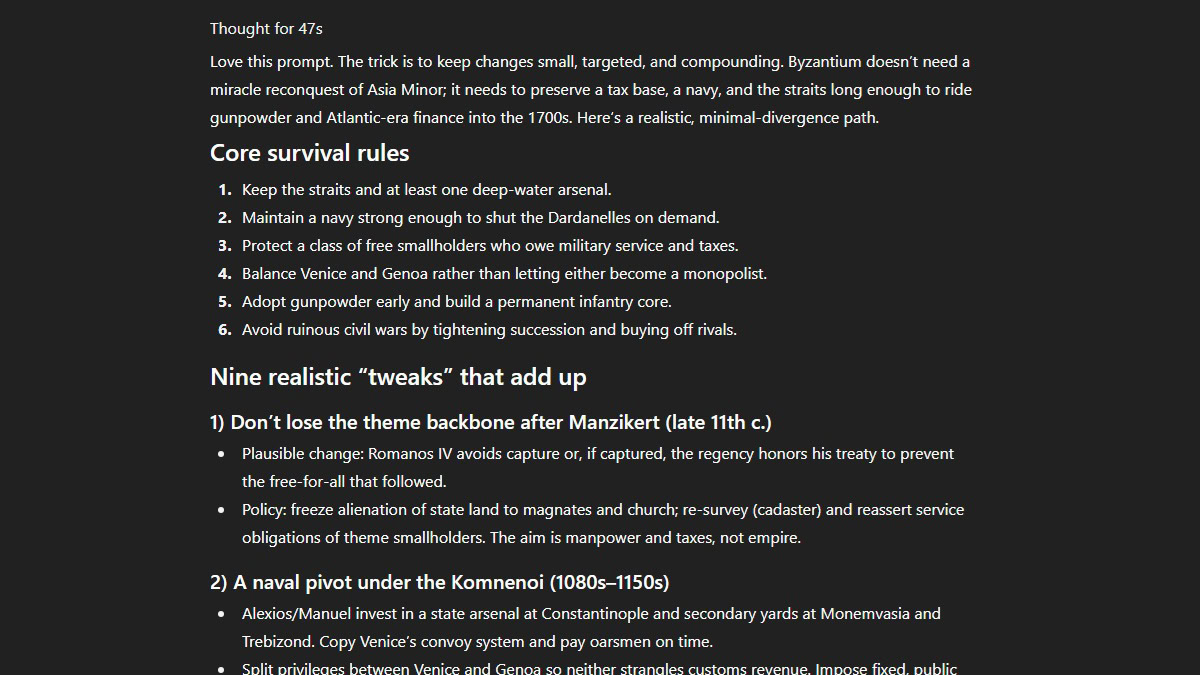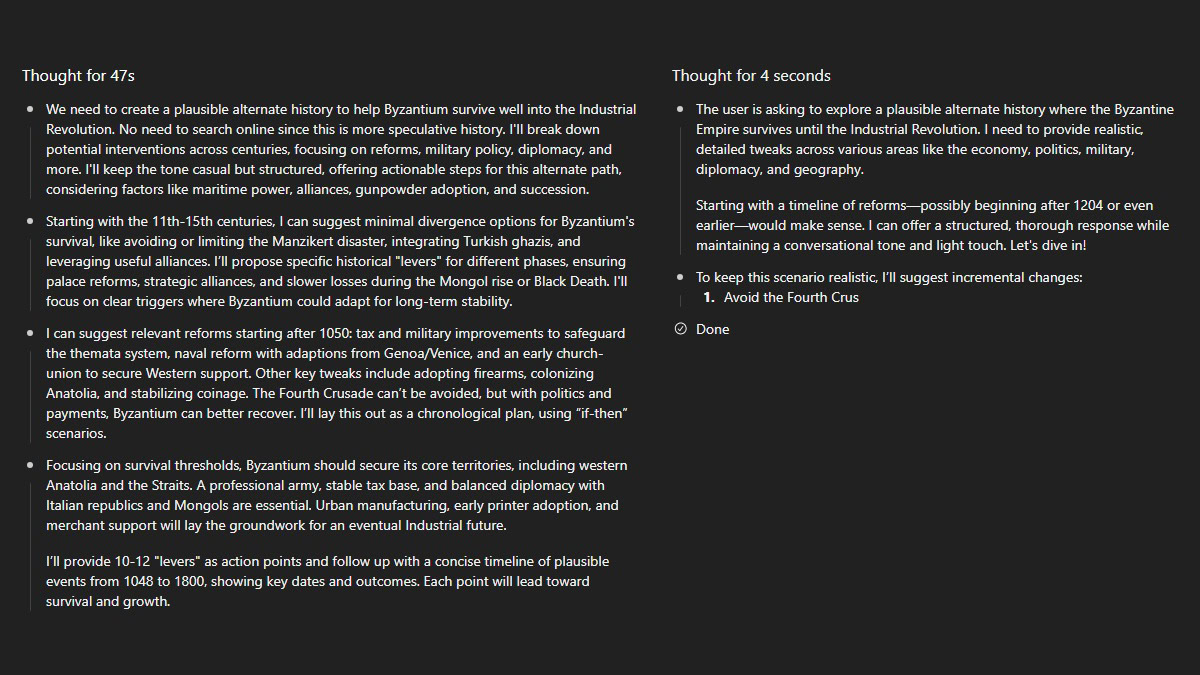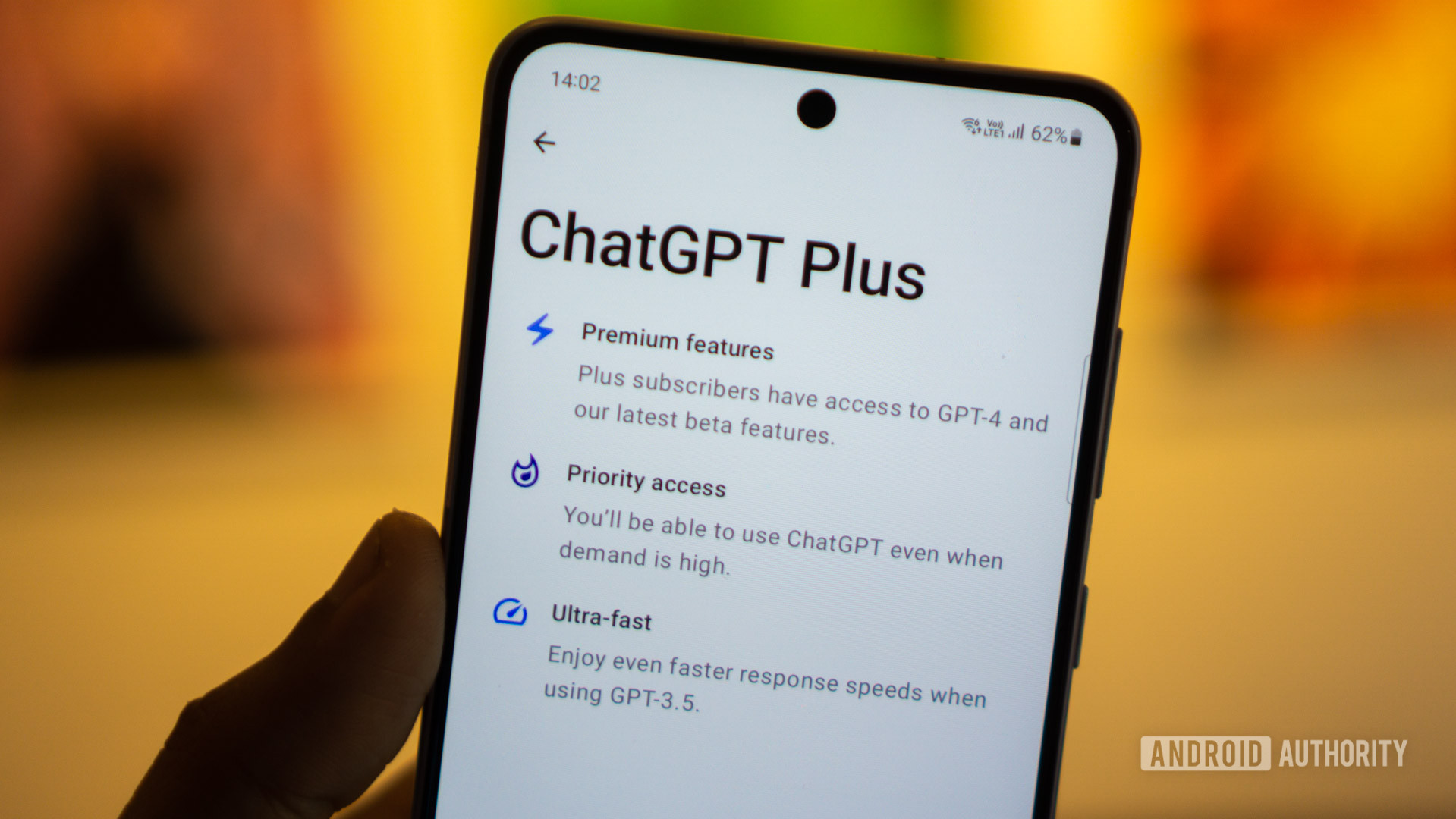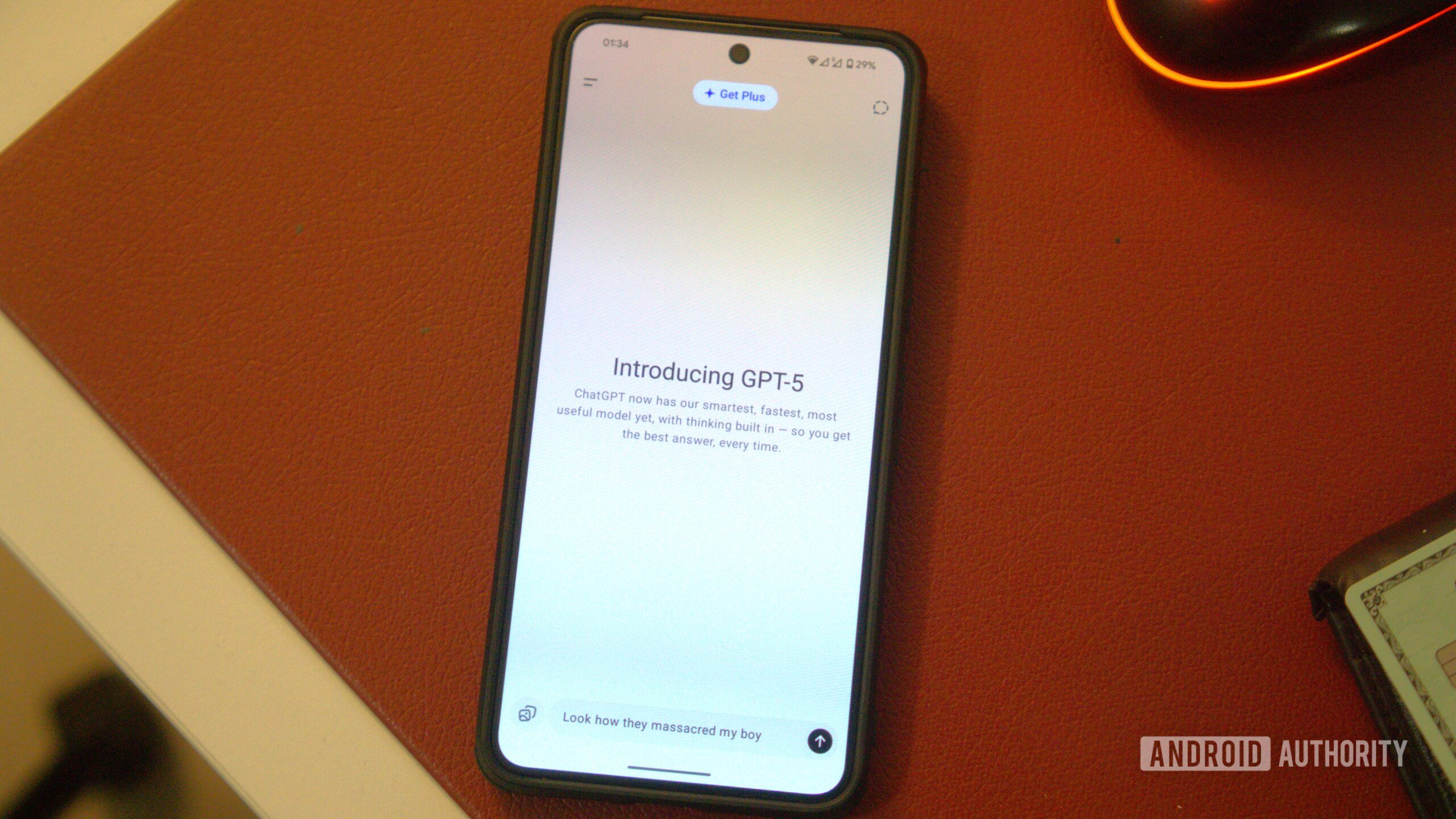Joe Maring / Android Authority
Recently, OpenAI has come under fire for GPT-5’s rocky launch. Many users have called it a step backward, citing a lack of personality and other tweaks that turned people off — sentiments echoed in our own GPT-5 review. Still, GPT-5 does improve on at least some of the previous legacy models.
Before we dive in, it’s important to note that GPT-5 really does have less personality. It’s curt and to the point in nearly every interaction. This makes it much less useful for creative writing, personal assistance, companionship, and even editing, as it tends to strip too much personality from drafts. Still, for some tasks, this curt personality works well and is exactly what you want. If you’re doing high-level work like deep research or trying to understand ethical or scientific concepts, you want answers that are honest and direct.
For ChatGPT Plus users, I can’t blame you if you switch back to an older model for creative work, personal assistance, or similar tasks. Don’t discount it entirely, though. While the default GPT-5 relies on automatic switching to figure out the best model for your query, you always have the option to switch to GPT-5 Thinking.
Let’s take a closer look at a few ways in which GPT-5 Thinking actually improves on older thinking models, including 03 and 04-high-mini.
For those with GPT-5 Thinking access, how do you feel about it?
0 votes
Ironically, GPT-5 has more personality than the legacy thinking models

Andrew Grush / Android Authority
Even though GPT-5 seems more blunt and less friendly compared to GPT-4o, I’ve found it actually shows more personality than 03, 04-mini-high, and other legacy thinking models.
For example, when brainstorming alternate Byzantine history with both 03 and GPT-5, 03 dove right in with no warmth, while GPT-5 started with a conversational, though slightly sycophantic, tone: “Love this prompt. The trick is to keep changes small, targeted, and compounding.” GPT-5 kept that conversational style throughout, while 03 was sterile and preferred to drown me in tables instead of providing a more conversational and readable breakdown.
GPT-5 feels like a middle ground between 4o’s personality and 03’s sterility. Whether that’s better or worse will depend on the user.
GPT-5 feels more alive by comparison, which makes it better for exploring philosophical or scientific ideas or even for spitballing alternate reality scenarios like this nerd does in his spare time. Not every use case will benefit from this shift, but it’s a notable difference.
GPT-5’s chain of thought is often deeper and clearer

Andrew Grush / Android Authority
I really love how GPT-5 Thinking handled its chain of thoughts compared to the older thinking models. In my tests, GPT-5 Thinking not only spent longer on queries, but also offered more detailed and readable chains of thought than 03.
On the alt-Byzantine Empire scenario I was recently working on for a short story, 03 spent four seconds and gave a brief answer. GPT-5 Thinking took 47 seconds and returned five bullets, each nearly a full paragraph, feeling much more like an internal monologue.
As for the actual results? Both gave me food for thought, even if neither was perfect. I will say that I fact-checked as many of its statements as I could, and, generally, the speculation was fairly balanced between the two models. Still, I found it easier to understand and read GPT-5’s responses in most cases.
It often gets the same answer faster than 03 did

Calvin Wankhede / Android Authority
When it comes to detailed queries, I feel that GPT-5 tends to think for longer, but direct questions are a whole other matter. If the answer is simple, GPT-5 tends to be the first to deliver a response.
For example, when I asked what happened to Nintendo on January 5, 1993, both GPT-03 and GPT-5 Thinking pointed to the same court decision, but GPT-03 took over two minutes to get there, while GPT-5 answered in just 40 seconds. I admit I was actually trying to trick one of them into hallucinating, so at least that didn’t happen!
This is just one example, but in the week or so that I’ve been using GPT-5, I’ve found that when used side by side, GPT-03’s creative thinking sometimes holds it back from answering as quickly and directly.
GPT-5 trades its creativity for fewer hallucinations

Andrew Grush / Android Authority
Many people say that GPT-5 is less creative, and that’s mostly true even in the Thinking model. I revisited some of my old chats about Stoicism and other philosophical concepts from earlier this year (which were originally generated with 03 or 04-mini-high) and asked GPT-5 the same questions. Its responses were more contained, less speculative, and more fact-based.
Being less creative also means GPT-5 Thinking is less likely to make stuff up by comparison.
For certain creative endeavors, I can see how GPT-5’s more sterile approach might be a hindrance, but these creative bursts also lead to more incorrect answers. Taking a closer look at the same older responses for 03 and digging deep online to verify as much as I could, I found some of these creative solutions were completely based on false premises. That’s been a much less common experience with GPT-5.
Ultimately, at least for the kinds of tasks and questions I ask, I care more about historical and scientific accuracy than anything. I also prefer not having to fact-check every detail as vigorously.
It tends to follow instructions better as well

Calvin Wankhede / Android Authority
At least in my experience, GPT-5 is less likely to go rogue than older models when it comes to following instructions. With GPT-03 and its legacy relatives, it was common to see it ignore or misunderstand parts of my instructions. GPT-5, on the other hand, does a much better job of doing exactly what I ask.
For example, I’ll often add “be honest with me” when asking a question that could get a sycophantic or overly optimistic response. With 03, it will usually listen, but sometimes goes along with my idea even when I know it’s not well-baked and makes false connections that aren’t really there. With GPT-5, I usually get a tad more pushback in these situations.
In a funny twist, if I don’t give clear instructions or don’t explicitly ask for extra critical or honest responses, GPT-5 can sometimes sweet-talk or go off-script a bit more than 03 ever did. I’ve had to rethink how I prompt GPT-5 compared to 03, but with clearer instructions, I get better results than 03 could produce in most scenarios.
The takeaway here is that when it comes to straight-up problems like “prove this” or “explain this,” GPT-5 often delivers more impressive results. For more conversational or creative needs, it’s a roll of the dice as to which model will provide the best answer.
Don’t want to miss the best from Android Authority?
You shouldn’t give up on GPT-5 yet, even if it’s not perfect

Calvin Wankhede / Android Authority
I won’t pretend that GPT-5 wasn’t a mess at launch or that it doesn’t still need refinement before it’s ready for primetime — especially as a replacement for GPT-4o and other legacy models.
As it stands, I see GPT-5 as a complement that works well in some cases, but it’s not my default. To be fair, I’ve never been the kind to have a default in the first place. I use different models for specific tasks, and I don’t see that changing unless OpenAI removes legacy models again.
Ultimately, GPT-5 was overhyped, so it was always going to feel disappointing. The fact that it seems to lose context a bit more easily than older models is also a concern, and I’m not sold on the idea of unifying everything under one automatic model.
That said, don’t let this turn you off completely. While it’s not perfect, there are use cases where GPT-5 fits better than older models, and there are features like Agent Mode that you can’t get with older models. I recommend using GPT-5 Thinking alongside other models for as long as possible. Figure out what it does well for you, as you might be surprised if you give it enough of a chance.
Thank you for being part of our community. Read our Comment Policy before posting.







